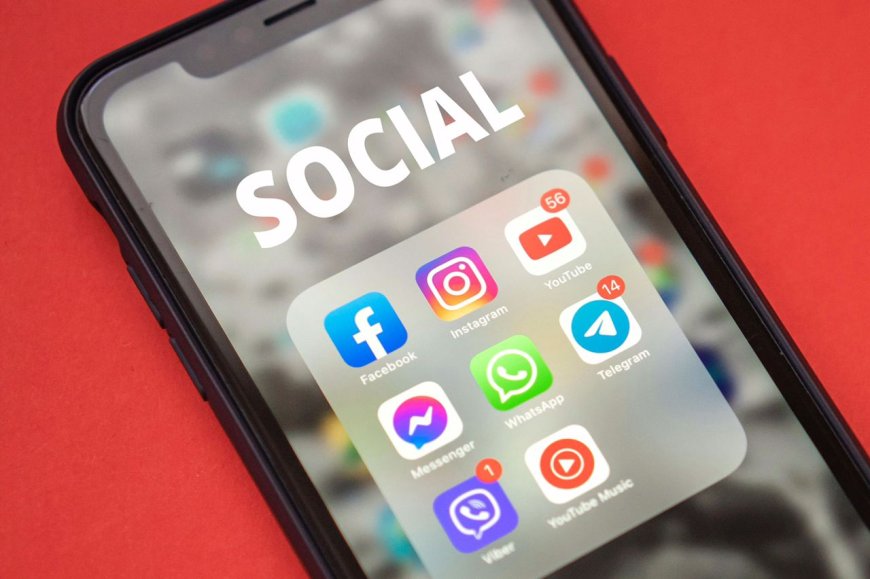The impact of social media on mental health
This article explores the impact of social media on mental health, highlighting its effects on emotional, psychological, and social well-being. It discusses how social media addiction, cyberbullying, and the pressure to present a perfect online image can lead to depression, anxiety, and even suicide.

Mental health includes our emotional, psychological, and social well-being. It affects how we think, feel, and act. It also helps determine how we handle stress, relate to others, and make healthy choices. Mental health is important at every stage of life, from childhood and adolescence through adulthood. The World Health Organisation has noted that Mental health is more than the absence of mental disorders. It exists on a complex continuum, which is experienced differently from one person to the next, with varying degrees of difficulty and distress and potentially very different social and clinical outcomes.
With the rise in the use of social media platforms, the world has become digitized, information is passed easily to a wider audience, and people can monetize their data and make a living by becoming content creators with social media, we can now connect with others across continents, access goods and services with ease, and build global communities. It has made modern life more interconnected, convenient, and opportunity-rich
But like the great philosopher Aristotle said "We are what we repeatedly do. Excellent, then is not an act, but a habit". This statement emphasizes the role of habits in shaping character, suggesting that consistent virtuous actions lead to excellence, making it a part of one’s nature. Ironically, social media has become an integral part of everyone's lives to the point that it has become a dangerous habit, especially for the younger generation.
An estimated 201 million people are addicted to social media use worldwide, scrolling endlessly on the bottomless pit of social media and on its enticing premise wishing they can stop but can't because it keeps drawing them in with the usual phrase ‘just one video’.
One of the features that notoriously leads to this is the adoption of the "For You Page"
Social media networks utilize algorithms to select information for you based on the things you enjoy, comment on, and follow. After that, these algorithms recommend related content based on your preferences. Platforms also allow you to further customize your feed with settings like "Not interested" or "Don't show this again." This makes it harder to unfollow the carefully chosen information that is meant to keep you interested.
Furthermore, just like bees are drawn to flowers, humans are drawn to gossip, and social media gives a premise for this. Social media platforms have become a ground for gossip and celebrity-like worship, where users obsess over influencers who have amassed large followings. People are then drawn to talk about or compare these influencers to one another, thereby putting the influencers under pressure to be better and do better in a toxic way. This has impacted the mental health of these people negatively as instead of being seen like normal humans they are looked up like Demigods. They begin to feel the pressure to constantly produce content, maintain a perfect image, and compete with their peers. Some of them, unable to live up to these expectations, sometimes suddenly go off the grid; some even go as far as ending it all due to this unhealthy pressure.
On the other hand, the normal social media user sees the extravagantly flamboyant lifestyles of these influencers and how things seem to be going so well for them, and end up feeling useless or like they are doing something wrong. This unhealthy competition leads to high incidents of imposter syndrome in social media users, mirroring influencers’ lifestyle choices in a bid to look like them, depression, and in worse cases even suicide.
Social media has made it easier to comment on posts, which has led to an environment where online harassment is encouraged. As a result, cyberbullying has become a widespread problem. Social media has made connecting with people easier, but it has also made it easier for cyberbullies to threaten and verbally abuse people, which directly affects their mental health. In contrast to physical bullying, which involves direct interaction, cyberbullying can be subtle and challenging to identify. Its digital nature also makes it possible for it to happen anywhere, even in the privacy of one's own home. A hateful message or over-the-line teasing sent to their inbox, a demeaning video of them going viral, or degrading rumors spreading online are just a few examples of the various ways cyberbullying manifests itself.
Cyberbullying also affects how a victim feels about themselves. According to the National Crime Prevention Centre, Two-thirds of cyberbullying victims said that getting bullied online hurt how they felt about themselves, bringing up feelings of insecurity and low self-worth. studies show that cyberbullying can have lasting mental, physical, and social impacts. In their research, nearly a third of cyberbullying victims said the incidents affected their friendships, whereas 13 percent said it affected their physical lives.
The extreme consequences of bullying are suicidal thoughts or thoughts of violent revenge. According to a National Vital Statistics Report, suicide is the 3rd leading cause of death among youth ranging in age from 15 to 24. Furthermore, the U.S. Department of Health and Human Services reported “substantial increases in both homicide and suicide rates among males from 2000 to 2003”. This statistics becomes chillingly relevant as more information is uncovered concerning the link between cyberbullying and suicidal ideation or action. According to researchers “Youth who are bullied or who bully others, are at an elevated risk for suicidal thoughts, attempts, and completed suicides”. Statistically both victims of cyberbullying as well as offenders proved to be much more likely to have attempted “bullycide,” the act of committing suicide due to the effects of bullying, than youth who had not been affected.
These statistics are scary and point to the fact that social media can harm the mental health of its users.
So do we crucify these apps and condemn them completely? No. Whatever is worth doing is worth doing in moderation. So regulations on social media have become a 21st-century need around the globe. Laws need to additionally be put in place to combat cyberbullying as it has become a real problem it should be treated like a real crime. Counseling and therapy services should also be available for older people and monitoring for younger people to negate the negative effects of social media in our lives.
written by Eudorah Ekeagwu
What's Your Reaction?





































































































